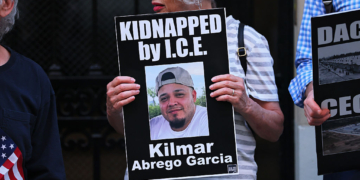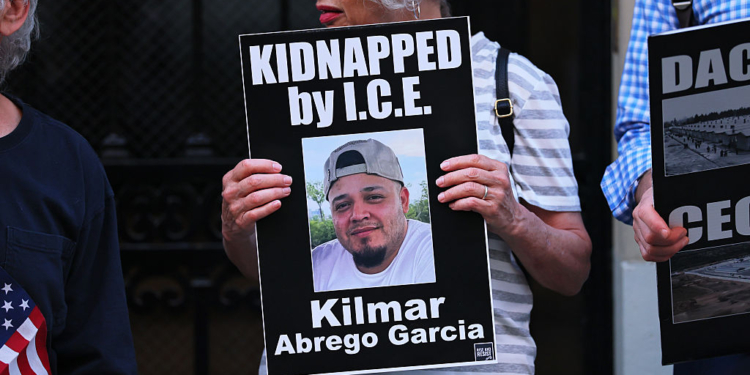Kilmar Abrego Garcia — a Maryland construction worker thrust into national controversy — is at the center of an intensifying legal showdown.
On Sunday, U.S. Magistrate Judge Barbara Holmes moved to grant Abrego Garcia’s release while he awaits trial on federal human smuggling charges. However, that release may prove more symbolic than real, according to the Associated Press.
Officials from Immigration and Customs Enforcement (ICE) are expected to swiftly detain him again and possibly initiate deportation proceedings.
Abrego Garcia, whose mistaken deportation to a Salvadoran prison in March drew widespread backlash, pleaded not guilty on June 13.
His defense team claims that the smuggling allegations are an attempt to rationalize his wrongful removal. It marked the first moment he could formally contest the Trump administration’s claims in a courtroom.
The smuggling indictment stems from a 2022 roadside stop in Tennessee. Though nine individuals were riding in his vehicle and suspicions were raised, law enforcement released Abrego Garcia with only a warning.
Later, a sweeping federal indictment accused him of moving hundreds of undocumented migrants — including children and MS-13 affiliates — across the U.S.
The judge’s Sunday ruling described her decision to release him as “little more than an academic exercise” due to ICE’s likely intervention.
Still, Holmes faulted the government’s reasoning for detaining him, writing, “Overall, the Court cannot find from the evidence presented that Abrego’s release clearly and convincingly poses an irremediable danger to other persons or to the community.”
Prosecutors quickly filed an appeal and asked Judge Holmes to pause her release order.
Acting U.S. Attorney Rob McGuire argued that the looming threat of deportation underscored why Abrego Garcia should remain jailed.
During the June hearing, he noted, “cooperating witnesses have accused Abrego Garcia of trafficking drugs and firearms and of abusing the women he transported.” Though no such charges were filed, McGuire contended the allegations signaled serious risk.
Even within the federal system, the case raises thorny bureaucratic conflicts. Holmes hinted that the Departments of Justice and Homeland Security may need to resolve whether their greater priority is prosecution — or expulsion.
However, Abrego Garcia cannot legally be returned to El Salvador due to a 2019 judicial ruling affirming threats from gangs.
“The government could deport him to a third country,” said Will Allensworth, Abrego Garcia’s public defender, “but immigration officials would first be required to show that third country was willing to keep him and not simply deport him back to El Salvador.”


























 Continue with Google
Continue with Google